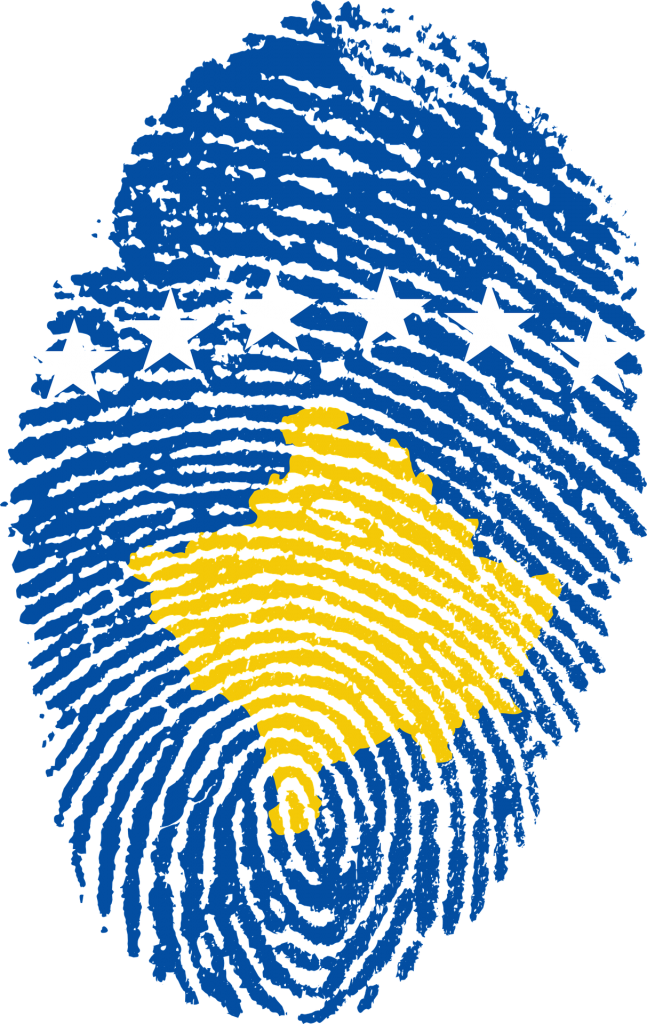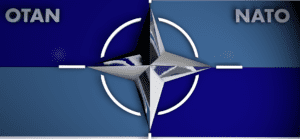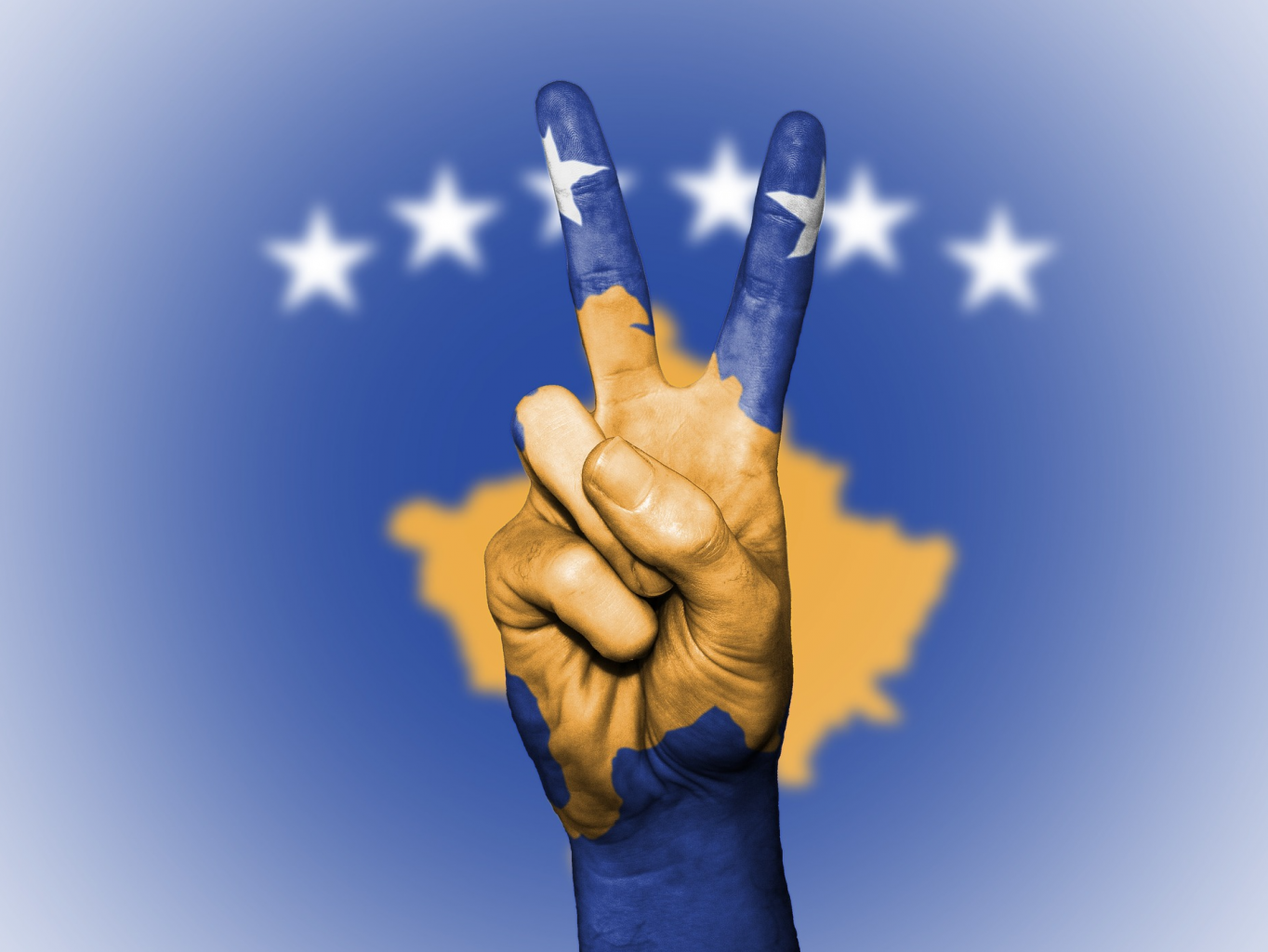The Balkan Peninsula, being located on the border line between East and West, Islam and Christianity, communism and capitalism (during the Cold War), has proven its strategic importance by playing great roles in both World Wars. Moreover, in many times, Balkans itself became the source of conflicts, which threatened the security of Europe and the East Mediterranean area. In the Balkan peninsula, in particular, Kosovo, despite its small territory, has been a significant zone of rivalry.
Kosovo, according to the countries that recognized local government’s declaration of independence in 2008, is a new-born independent state. On the contrary, according to the countries that refused the declaration, among whom Serbia and Russia can be mentioned at the first hand, it is an autonomous district of Serbian Republic invaded by NATO (KFOR[1]) by the United Nations Security Council Resolution (UNSCR) 1244. Regarding NATO, the situation is more complex. Due to the international regulations, NATO accepts Kosovo as a part of Serbian Republic though the majority of NATO members, including the U.S., have recognized Kosovo’s independence as soon as it is declared.
Speaking of security in Kosovo, NATO, KFOR in local level, is the main actor that conducts this task in coordination with relevant organizations like UNMIK[2], EULEX[3] and OSCE[4]. Their mandates range from observation to mentoring over local Institutions in Kosovo (IiKs). Besides them, institutions like Kosovo Security Force (KSF)[5] and Kosovo Police (KP) are gradually developing despite the international and constitutional constraints on their roles in security. Kosovar leaders seem eager to fulfil the necessities of being independence via taking part in security issues. At this point some questions have begun to rise in political areas. There are concerns about the possible reactions of global and regional actors against participation of IiKs in security area. And it is under discussion if overall political situation in Balkans may be affected by developments in Kosovo.
In this article, I will analyze the attributes of actors and find out reasonable answers to the questions above. Who are the actors? First of all, the Q5 Countries, the main contributors to Kosovo war, have an important role on Kosovo’s fate. Besides them, Turkey, a regional actor and contributor to Kosovo war, has historical and cultural interests in Kosovo. On the other side, Russian Federation, historically the racial and religious supporter of Serbia, fosters deep concerns about the Western march through her area of interest.[6]
Current Security System in Kosovo
UNSCR 1244 establishes the legal base for international military presence and appoints KFOR as the responsible body for creating a secure environment in Kosovo. This is accepted by the all sides in Kosovo, including Russia despite some of her complaints. In the beginning of the mission KFOR made agreements with both sides, Military Technical Agreement (MTA)[7] with Former Yugoslavian Republic (today represented by Serbia) and Rambouillet Agreement[8] with Albanian Representatives.
Nowadays, in Kosovo, there is a complex security system through which the KFOR serves in the military realm securing territorial integrity of the country, including air zone and borders.
Besides KFOR, EULEX, a European mission for rule of law, conducts a police and judicial mission, including mandating, mentoring, and advising positions to the IiKs, such as KP. On some fields EULEX has the right to act as the first party for emergency situations or for high profile cases. Regarding public riot control issues, EULEX may also request KFOR to get involved to the situation as a third role responder. To coordinate the collaboration on the field, two organisations have agreed on some joint procedures and conduct periodic meetings and keep liaison officers mutually in their headquarters.
When it comes to the borders, an intricate system is conducted. KFOR has handed over the border responsibility of Montenegro, Albania and Macedonia to KP. But border with Serbia, which is accepted as an administrative boundary line (ABL), is controlled through a joint patrol system amongst KFOR, EULEX and KP units.
The Role of Kosovo Security Force
Certainly, there will be an end to the KFOR and the UELEX missions depending on the political developments in the country. After establishing a full security in Kosovo, KFOR has already started to hand over some of its responsibilities to the local institutions. Moreover, KFOR played a role on demilitarizing Albanian militias and begun to construct a peaceful and lightly armed security organization for Kosovo. Accordingly, EU is decreasing the EULEX manning as well.
At this point a couple of questions becomes important for decision makers. Who will provide security in Kosovo after KFOR mission comes to an end? What is the agenda of each actor about it?
Whereas the international regulations dictate that the only legal military force in Kosovo is KFOR, the perception of most Kosovar Albanians is the idea that the KSF is a part of security and is going to take over all responsibilities of KFOR in the future. This is what the Serbian side and his great-power supporters will never accept. Serbia is concerned about whether KSF is pretending to be a military force.[9] Although not recognized by Serbia, the constitution of Kosovo brings strong barriers for the KSF to pretend like an armed force. The mandate is clarified as “to conduct crisis-response operations in Kosovo and abroad; civil protection operations within Kosovo; and to assist the civil authorities in responding to natural disasters and other emergencies”. [10] The manning is limited to 2500 personnel and they are not allowed to be equipped with heavy weapons, like tanks, helicopters, artillery. Naturally, this situation is not welcomed by the majority of Albanians in Kosovo, the country in which opposition parties from the nationalist wing always condemn the government being inactive.
Transformation of KSF to Kosovo Armed Forces (KAF)
Nowadays, in Kosovo, one of the outstanding subjects for the public as well as for the politicians is the transformation of the KSF to the KAF. From the aspect of the Government of Kosovo, the main objective of upgrading the status of KSF seems to be serving to fulfilling one of the criteria of being an independent state. But it is well-known that developing a real army in a capacity to defend Kosovo’s territory, including borders and air space, has its own numerous challenges. Therefore, there are rumors in the public that acclamation of Kosovo Government to upgrade the KSF is just a political maneuver against the nationalist opposition.[11] However, this claim remains somewhat futile since the U.S. is sincerely dealing with the issue.
On this issue, as the main supporter, the U.S. provides a team named as Defense Institute Reform Initiative (DIRI) to work with KSF staff in order to come up with a roadmap. According to the local politicians, the KAF will comprise of 5,000 troops and take the responsibility of defending all the territory of Kosovo. Accordingly, the minister of KSF will be the minister of defense.
Kosovar Albanians view the problem as only a constitutional amendment and a budget issue.[12] Such an amendment, however, requires the persuasion of Kosovar Serbian Representatives in the Parliament according to the constitution which necessitates not only the general 2/3 votes of the parliament but also 2/3 votes of the minority.[13] Considering the facts that 10 out of 20 members are Serbian and they are all directed by the Serbian Republic, it seem difficult to pass the amendment from the parliament.
However, from the aspect of NATO, it is not only a matter of constitutional amendment. It is also an issue of international law, because the status of Kosovo is founded by the UNSCR 1244 that says “The Security Council … authorizes member states and relevant international organizations to establish the international security presence in Kosovo.” And according to the Military Technical Agreement Former Yugoslavia handed over the territorial responsibility to KFOR, but not IiK. Therefore, from NATO point of view, it is expected to be so, KFOR is the only armed forces in Kosovo and it cannot handover his responsibilities to the KAF. Although members act in different ways, it seems that NATO’s stance is to comply with the resolution. On the other hand, another important question pending is the time to finalize the mission of KFOR. There are different approaches on this issue. While some of the partners are complaining about the cost of their contingents in KFOR, others make use of KFOR’s presence to keep force in the area for national purposes and to hold a square of chessboard against global rivals.[14]
On the other hand, Serbian minority backed by Serbia seems resistant against the idea of a local armed force and is ready to do whatever it takes to hinder any regulation within and outside the parliament. Similarly, Serbia who is not recognizing the KSF despite its limited mandate and structure, cannot be expected to comply with such an idea. From their aspect, the only legal armed force to act in their autonomous district is KFOR who is also responsible for protecting the rights of minorities. Although it has limited pressure inside Kosovo, Russian Federation, the long-term ally of Serbs, may make up an influence in Kosovo politics throughout UN Security Council and UNMIK, in local level.
What are the Attributes of Foreign Actors?

image by pixabay
Since the NATO Operation in 1999, NATO is the main actor in Kosovo, especially on security issues.
KFOR, NATO’s task force in Kosovo, has been assigned to demilitarize Kosovo Liberation Army (KLA)[15] and to develop KSF as a peaceful, multi-ethnic security force, but not an army. KFOR began to conduct this task with an adherent structure named as Military Civilian Advisory Division (MCAD), and then transformed the structure into twoindependent institutions, namely NATO Advisory Team (NAT) advising on ministry level and NATO Liaison and Advisory Team (NLAT) advising on a tactical level. In 2016, NATO merged two institutions into one naming as NATO Advisory and Liaison Team (NALT). But more than advising, both of them have made their best to control KSF by aligning it to respect its mandate.[16] Although NATO has kept an impartial approach based on UN resolution, each of NATO members have developed different attributes against KSF.
US, having the largest camp in Kosovo and commanding one of the two Battlegroups in KFOR, has been acting as the biggest supporter of KSF. Besides a resident Attaché and Office of Defense Cooperation (ODC)[17] inside U.S. Embassy in Pristine, IOWA Gourds is the main agent to conduct the cooperation. On the other hand, US is the main supporter of KSF transformation and a U.S. organization, Defense Institutional Reform Initiative (DIRI)[18], is assisting KSF for planning and conducting the transformation. As it is easily seen, US, by supporting and supervising transformation of KSF, is aiming to strengthen a border against Russia.
UK and Germany, two major supporters of KSF, have kept high positions in NAT, NLAT, NALT, and bilateral advisors. Despite assisting KSF in many aspects bilaterally, their stance to transformation is not clear. On the other hand, Germany providing an important logistic support to KSF, is seriously sensitive on KFOR’s existence in the area due to its umbrella role, which provides Germany with a large area to play in the scene.
Italy, keeping COM KFOR position and the command staff of one of the two Battle Groups, has relatively fewer relations with KSF and shows a distant stance to transformation.
Turkey, not a Quint State but as a NATO Country, is trying to be active in the field, keeps important positions in KFOR and NALT, namely an Attaché and Advisor to KSF, and supports KSF on finance, training and health. Despite being eager to see KSF as an armed force, Turkey is not involved in the planning procedure.
A Short Projection to the Future
A struggle is underway between Kosovo’s Albanian Leaders and Serbian Government for the status of Kosovo, and each side is trying to seize some advantages and privileges. Status of KSF is one of these areas where the Government of Kosovo, with the support of U.S., is trying to create a de facto against Serbia. Being aware that having an armed force would mean an important indication for the independence of Kosovo, the Serbian Government, backed by Russia, seems not to comply with it easily. At least, they will try to extract very important privileges to upgrade their rights in Kosovo and the status of Serbian minority in the country. Moreover, a guarantee for a membership in the EU would be a real gain for Serbia, which may create a convincing effect on the people as well. In the near future, leaders in Belgrade and Serbian people might find themselves in a position to decide a tradeoff: Whether to keep strict claims on Kosovo or a wealthy and comfortable membership of EU, maybe NATO, in return for complying with an independent Kosovo. Or parts may find out an optimum solution that fits with each other.
Another aspect of the situation is the status of KFOR in the future. KFOR’s existence should be expected to remain the same for the sake of its umbrella role for activities of its members. Serbia is also satisfied with its presence due to its mandates for the Kosovo’s status.
It seems that Albanian Government in Kosovo is going to continue his claims and efforts to upgrade KSF to KAF, regardless of NATO’s status and Serbian perception, as long as its and US aims overlaps. But to be realistic, they should not be expected to start new crises in the region, probably to deliver some privileges to Republic of Serbia and Serbian Minority in Kosovo and try to convince EU countries for their support in transformation.
References:
[1] The Kosovo Force (KFOR) is a NATO-led international peacekeeping force leading a peace-support operation in Kosovo since June 1999 in support of wider international efforts to build peace and stability in the area. http://jfcnaples.nato.int/kfor/about-us/welcome-to-kfor/mission
[2] The mandate of the United Nations Interim Administration Mission in Kosovo (UNMIK) was established by the Security Council in its resolution 1244 (1999). The Mission is mandated to help ensure conditions for a peaceful and normal life for all inhabitants of Kosovo and advance regional stability in the Western Balkans. https://unmik.unmissions.org/mandate
[3] European Union Rule of Law Mission (EULEX) assist Kosovo, judicial authorities and law enforcement agencies in their progress towards sustainability and accountability and in further developing and strengthening an independent multi-ethnic justice system and multi-ethnic police and custom service, ensuring that these institutions are free from political interference and adhering to internationally recognised standards and European best practices. http://www.eulex-kosovo.eu/what is eulex
[4] Organization for Security and Co-operation in Europe (OSCE) Mission has a mandate is to take the lead role in all matters relating to institution- and democracy-building, as well as human rights, in Kosovo. http://www.osce.org/mission-in-kosovo
[5] The Kosovo Security Force (KSF) is lightly armed and uniformed security force serving in Kosovo mentored by NATO.
[6] Lavrov, Sergey, “Russia’s Foreign Policy: Historical Background“, Russia in Global Affairs, March 3, 2016
[7] Military Technical Agreement (MTA) between the International Security Force (“KFOR”) and the Governments of the Federal Republic of Yugoslavia and the Republic of Serbia regarding procedures of KFOR’s deployment into the area. http://www.nato.int/kosovo/docu/a990609a.htm
[8] “The Rambouillet Agreement was a proposed peace agreement between the Federal Republic of Yugoslavia and a delegation representing the Albanian majority population of Kosovo. It was drafted by the North Atlantic Treaty Organisation (NATO) and named for Chateau Rambouillet, where it was initially proposed. The significance of the agreement lies in the fact that Yugoslavia refused to accept it, which NATO used as justification to start the Kosovo War. Belgrade’s rejection was based on the argument that the agreement contained provisions for Kosovo’s autonomy that went further than the Serbian/Yugoslav government saw as reasonable. In the end, on 18 March 1999, the Albanian, American and British delegation signed what became known as the ‘Rambouillet Accords’ while the Serbian and Russian delegations refused. The accords called for NATO administration of Kosovo as an autonomous province within Yugoslavia; a force of 30,000 NATO troops to maintain order in Kosovo; an unhindered right of passage for NATO troops on Yugoslav territory, including Kosovo; and immunity for NATO and its agents to Yugoslav law.” Judah, Tim (2009). The Serbs: History, Myth and the Destruction of Yugoslavia, New Haven, CT: Yale University Press.
[9] New Kosovo Security Force Launched, Belgrade Wary https://www.rferl.org/a/New_Kosovo_Security_Force_Launched_Belgrade_Wary/1372900.html
[10] Law on the Security Force, http://www.mksf-ks.org/repository/docs/Law
[11] “Kosovo Army, A Need or Power Game?”, https://europeanwesternbalkans.com/2017/05/19
[12] Armend, Muja, “What next for Kosovo Security Sector: KSF an army or not?”, KCSS, June 2013
[13] Constitution of the Republic of Kosovo, Article 64 Structure of Assembly, available at http://www.gjk-ks.org
[14] In various dates some member countries pulled back their contingents because of the costs for instance see the article: “Kosovo’s path towards the NATO partnership for Peace (PfP) Program”, KCSS, P.11
[15] KLA, Kosovo Liberation Army (Albanian UÇK: Ushtaria Çilirimtare Kosoves)
[16] According to personal observations of the writer NLAT officers criticized and reported some trainings of KSF as out of mandate.
[17] Office of Defense Cooperation (ODC) plans and operates the cooperation regarding defence between US and local country. https://xk.usembassy.gov
[18] Defense Institutional Reform Initiative (DIRI) is a US security program to develop effective, accountable, professional and transparent partner defense establishments in partner countries that can manage, sustain and employ national forces and to provide subject matter experts to work with partner nations to assess organizational weaknesses and establish a roadmap for addressing the shortfalls. http://www.dsca.mil/programs/defense-institutional-reform-initiative

